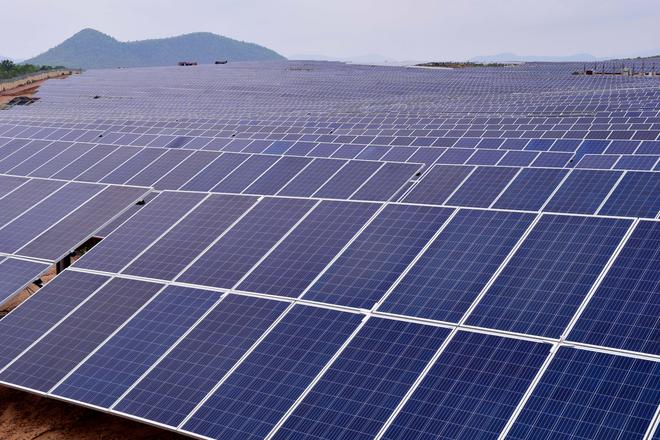Solar waste handling policy

Copyright infringement is not intended
Context: India lacks solar waste handling policy.
Why India needs a solar waste handling policy?
- India is ramping up for solar power installation. India has set a target of producing 100 GW of solar energy by 2022.
- The International Renewable Energy Agency (IRENA) estimated that the global photovoltaic waste will touch 78 million tonnes by 2050, with India expected to be one of the top five photovoltaic-waste creators.
- India does not yet have a firm policy on managing waste that results from used solar panels or from the manufacturing process.
Current situation:
- India currently considers solar waste a part of electronic waste and does not account for it separately.
- There is no commercial raw material recovery facility for solar e-waste operational in India, but a pilot facility for solar panel recycling and material recovery had been set up by a private company in Gummidipoondi, Chennai, Tamil Nadu.
- SolarPower Europe and PVCycle, supported by the European Union in India and the Union Ministry of New and Renewable Energy, could generate over 34,600 tonnes of cumulative solar waste in India by 2030, according to a report prepared by the National Solar Energy Federation of India.
- Solar panels have a life of 20-25 years, so the problem of waste seems distant. It is likely that India will be faced with solar waste problems by the end of this decade, and solar waste will end up being the most prevalent form of waste in landfills soon.
Other Countries Handling Solar Waste:
- The Waste Electrical and Electronic Equipment (WEEE) Directive of the EU (European Union) imposes responsibility for the disposal of waste on the manufacturers or distributors who introduce or install such equipment for the first time.
- The UK also has an industry-managed “take-back and recycling scheme”, where all PV producers will need to register and submit data related to products used for the residential solar market (Business-to-Consumer) and non-residential market.
- While there are no federal statutes or regulations in the US that talk about recycling, there are some states who have proactively defined policies to address end-of-life PV module management.
- The federal government In Australia has acknowledged the concern and announced a USD 2 million grant as part of the National Product Stewardship Investment Fund to develop and implement an industry-led product stewardship scheme for PV systems.
- Countries such as Japan and South Korea have already indicated their resolve to come up with dedicated legislation to address the PV waste problem.
Suggestion:
- Government should propose an action plan to evolve a “circular economy” in solar panel, through reuse/recycling of waste generated.
- Strong e-waste or Renewable Energy Waste Laws: EPR for the manufacturer and developers to take responsibility for end-of-life the solar panel.
- PV modules were the first to be included in the EU’s WEEE regulations. It includes options for financing waste management.
- Infrastructure: To bring down the cost of recycling infrastructure investment is required, coordination between the energy and waste sector to efficiently handle the renewable energy waste and build more recycling plants to avoid solar panels ending up in landfills.
- Environmental Disposal and Recycling: Environmental disposal and recycling of solar waste could be part of the power purchase agreement SECI / DISCOMS / government signs with project developers.
- Ban on Landfills: Solar panel waste is harmful to the environment as it contains toxic metals and minerals that may seep in the ground.
- Business Incentives: New business models, incentives or issues of green certificates to be provided to encourage the recycling industry to participate more.
- Research and Development: Innovation in design may have an impact on the type of waste they generate; technology advancements will be significant in reducing the impact of renewable energy waste. New panels, for example, use less silicon and produce less waste during the manufacturing process.



1.png)
